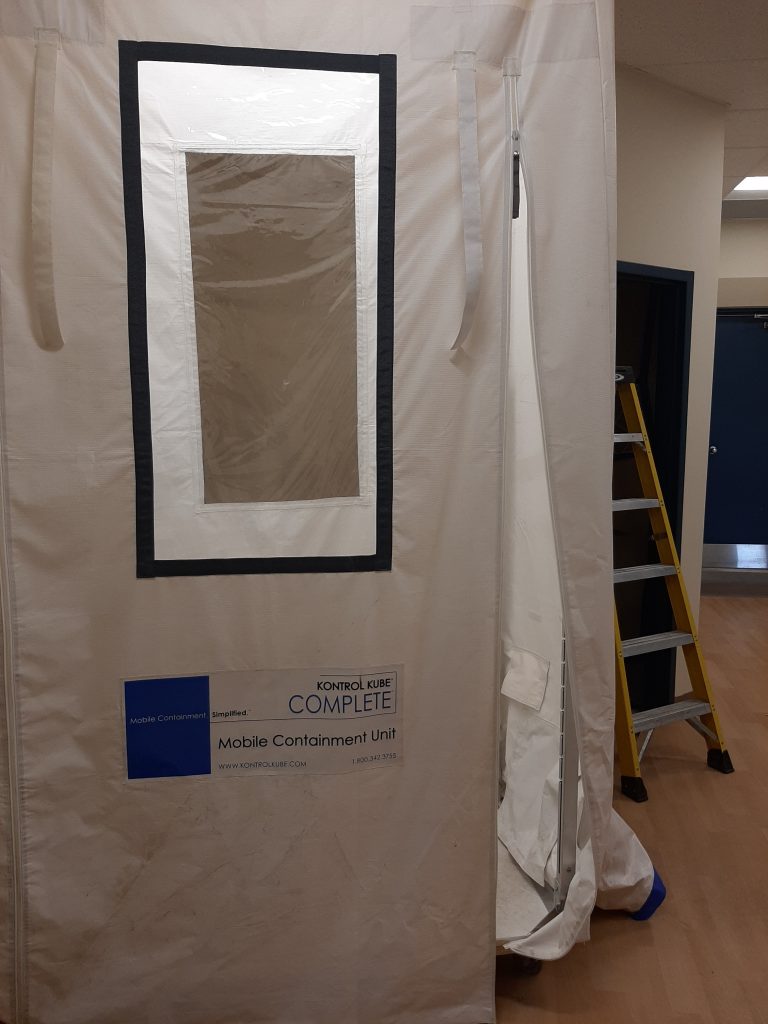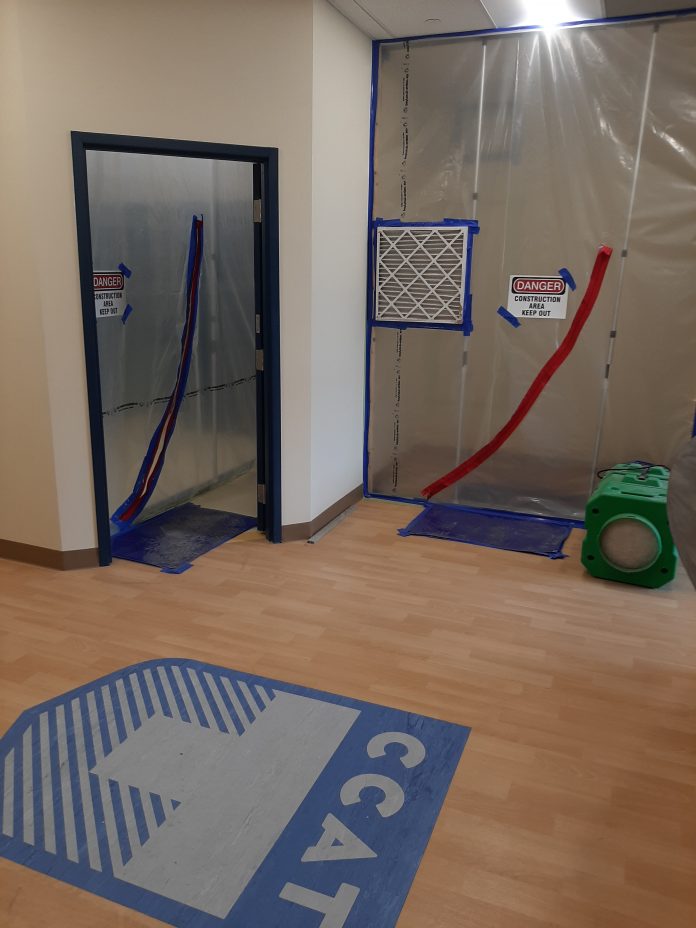Ontario Construction Report special feature
The United Brotherhood of Carpenters’ Infection Control Risk Assessment (ICRA) training teaches healthcare construction protocols that save lives.
In a post-COVID world, the ICRA training program will teach healthcare personnel, construction professionals and architects best practices that protect patients by working safely during all phases of healthcare facility renovations.
Participants learn to perform construction and renovations safely in a health-care facility.
“Hospital associated infections (HAI’s) happen in all health care facilities even when construction is not being done. ICRA helps prevent the number of HAI’s from increasing during the construction phase,” said Adam Bridgman, provincial carpentry training coordinator, Carpenters’ District Council of Ontario (CDC). “It’s nice to know that we are teaching our students how to keep other people safe.
COVID-19 and the tragedies that happened at long-term care homes across Ontario have shone a light on the need for ICRA training.

Healthcare associated infections affect 1.7 million patients every year across Canada and 100,000 deaths occur annually.
Trained professionals prevent the spread of deadly infections.
“Buyers of construction can be know that when they hire Carpenters’ affiliated contractors, they are getting construction workers with expert training in infection control, job safety and healthcare renovation,” said Mike Yorke, president, Carpenters District Council of Ontario.
There are two programs that the carpenters have developed – a 24-hour certification class for members and an eight-hour awareness class for non-members.
The 24-hour certification class is open to union members only and covers topics such as how to construct, maintain and monitor ICRA environments, the CSA standard the governs over health-care facility renovation and construction and professionalism within the healthcare facility.
The eight-hour ICRA awareness class is open to members and non-members (signatory contractors, project managers, site-superintendents, health-care stakeholders, architects, and engineers). This session informs participants on the uniqueness of a health care renovation and prepares them to work within the ICRA environment.
While COVID-19 has not changed the training initiatives since programs were already in place before the pandemic, the demand from the industry has been impacted.
From an external point of view, everything has changed.
“There has been an increase in demand for the training,” Bridgman said. “The public has become more educated on infections and control. The tragic impact at long-term care homes has shown that facilities need to be redesigned which leads to construction and ICRA.”
Contaminants released during renovation projects can lead to deadly infections in healthcare facilities. That’s why it is critical that anyone working in a hospital or long-term care home during renovations should have completed ICRA training.
“We know how to control contaminants during construction and/or renovation. That could be the difference between an immunocompromised patient contracting something and becoming sicker or surviving their trip/stay that a hospital under construction,” Bridgman said.
The carpenters’ union has taken a unique approach in response to the growing need for strong and effective infection control measures in facilities across Ontario.
“We are willing to train stakeholder outside our union, which is a very unique situation,” Bridgman explained. “There are not many organizations that willingly would train non-, but it is such an important aspect to successful health-care construction that it is necessary.”
The carpenters’ ICRA training lab mimics a hospital environment. Some of the features include a soft wall that allows for temporary renovations while controlling the environment on both sides.
There is also a hard wall enclosure designed for long-term projects, renovations and new builds, isolating the renovations from the health care facility.
A Hepa filter system creates a negative pressure environment and monitors continuously, to ensure the environment is maintained 100 per cent of the time.
There is also a mock patient room isolated with a soft wall.
The non-member eight-hour awareness class is for healthcare stakeholders and construction professionals.
For members, the 24-hour certification class instructs participants on how to install enclosures, maintain and monitor negative air pressures in healthcare facilities.
“ICRA training saves lives,” said Yorke. “When we move into a post-COVID economic recovery, our training will enable our members to excel on hospital projects, on long-term care projects and really be a benefit to the province of Ontario and to our country.”
For more information, visit thecarpentersunion.ca.

